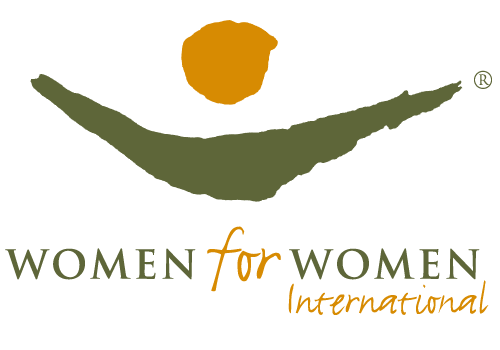Our Mission
In countries affected by conflict and war, Women for Women International supports the most marginalized women to earn and save money, improve health and well-being, influence decisions in their home and community, and connect to networks for support. By utilizing skills, knowledge, and resources, she is able to create sustainable change for herself, her family, and community.
Since 1993, Women for Women International has helped nearly 429,000 marginalized women in countries affected by war and conflict. We directly work with women in 8 countries offering support, tools, and access to life-changing skills to move from crisis and poverty to stability and economic self-sufficiency.
We bring women together in a safe space to learn life, business, and vocational skills. Once enrolled, each receives a monthly stipend – a vital support that enables her to participate.
Women increase their ability to earn an income with new skills that are in-demand. They learn about their legal rights, and they become knowledgeable about health and nutrition. The result: stronger women, stronger families, and stronger communities. This ripple effect is profound.
Women for Women International delivers our programs through the generous support of individual, corporate and foundation donors, partners, and governments. Our work is regularly featured in international media, including BBC, CNN, MSNBC, The Guardian, The New York Times, 60 Minutes, and The Oprah Winfrey Show. Recognized for our global impact Women for Women International was honored with the prestigious Conrad N. Hilton Humanitarian Prize in 2006, and receives favorable ratings from independent charity groups.
Resources
Displaying 1 - 4 of 4‘The Woman is a Tractor’: Marginalised women’s inadequate access to land in South Kivu, Summary Report
Women for Women International has worked with over 84,000 marginalised women in the east of the Democratic Republic of Congo and commissioned research to explore these women’s land rights. The study found that the women could not own land, even through inheritance, while men controlled the sales of the items that their wives farmed.
‘Women inherit wrappers, men inherit fields’: The problem of women’s access to land in South Kivu, Democratic Republic of Congo, Research Report
Contains a brief review of the land issue in DRC; women’s access to land: secondary land rights; the place guaranteed to women in initiatives to reform the land system; conclusions and recommendations. Women’s access to land must be placed within the context of the complex and pluralistic land crisis and bloody conflicts that continue to destabilise that part of the DRC. Essential resources, such as credit, quality seeds, technology, information and access to markets are cruelly lacking.
DFID support to Landesa to improve land rights and private sector investment
General
This activity (DFID support to Landesa to improve land rights and private sector investment ) is a component of Land Governance for Economic Development reported by FCDO, with a funding type of 111 - Not for profit organisation and a budget of £656,680.This project benefits Developing countries, unspecified.And works in the following sector(s): Agricultural land resources.
Improving livelihoods for 6,000 marginalised women in DRC and supporting their access to land
General
This project will provide 6,000 socially-excluded women in South Kivu, DRC with a holistic training programme that will enable them to understand their rights; gain agricultural skills; access land and credit; and increase incomes. It will contribute to creating an enabling environment for women by training 1,500 male leaders on women’s rights and strategies to facilitate these rights; and by placing women’s right to access land on DRC’s development agenda via research and advocacy





